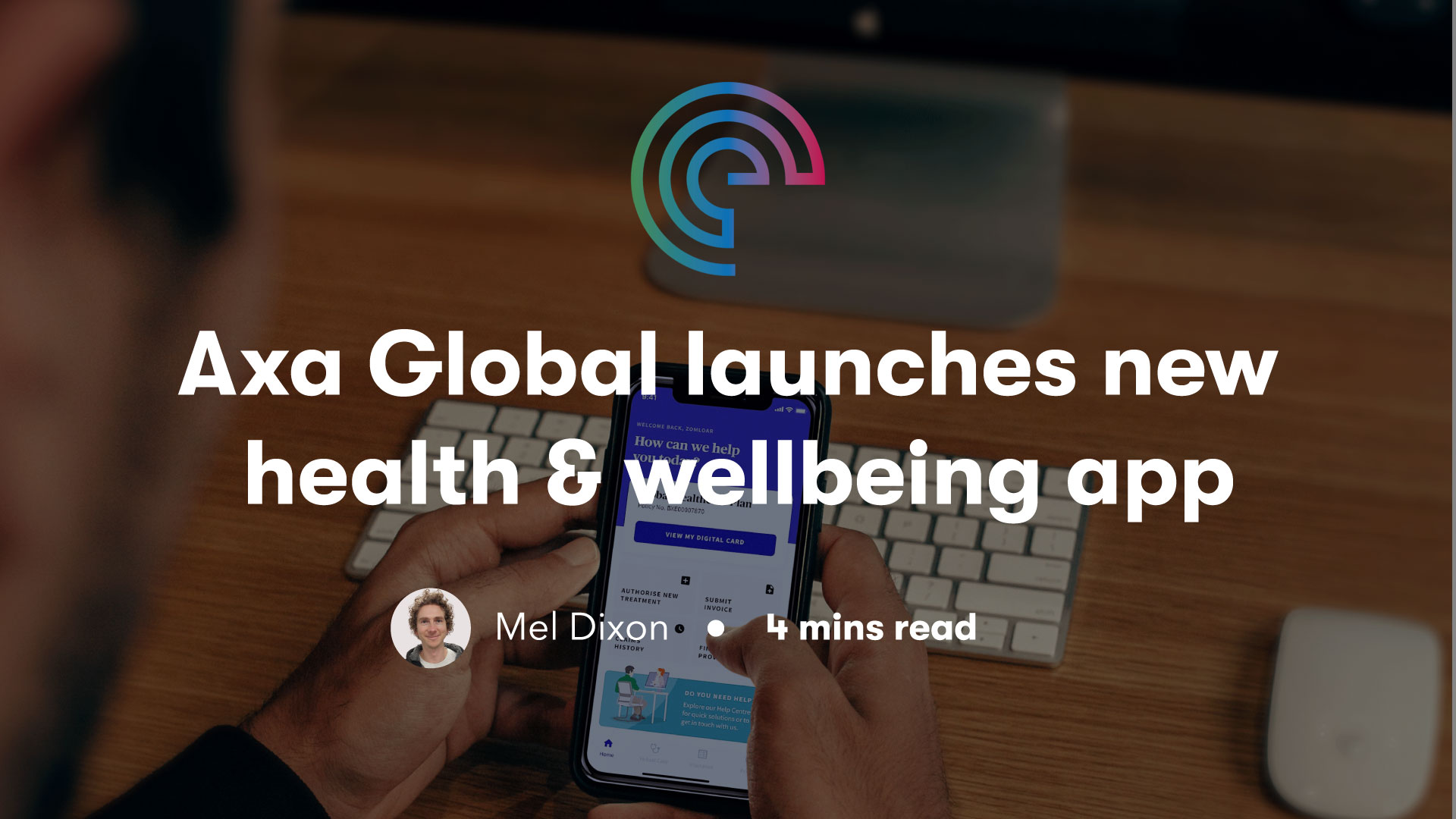UK companies are increasingly drawing on international talent – whether that’s because they have offices around the globe, are utilising remote talent overseas or have expat employees.
HR are entrusted with making sure each global employee is supported from a health and wellbeing perspective. And it’s no easy task. As an insurance broker with specialist expertise in the international employee benefits market, we see a lot of companies making the same mistakes.
In this blog post we identify the six most common mistakes and how to fix them.
1. Lopsided benefits > Balanced benefits
Employee benefits can be divided into three broad categories:
i. Insurance: health-related insurance policies such as Private Health Insurance, Life Insurance and Critical Illness Cover.
ii. Everyday wellness: proactive approaches to wellbeing, such as gym discounts, Employee Assistance Programmes, BMI tracking, mental health toolkits and much more.
iii. Rewards: perks to be enjoyed such as retail discounts, extra holiday days and bonus schemes.
Achieving the right balance between these three is an important part of fulfilling the needs of your team. Yet, businesses often make the mistake of leaning too heavily on one category. For example, an insurance-heavy approach will neglect benefits which bolster staff wellbeing and those which provide positive motivation. On the other hand, too much emphasis on rewards could leave your staff’s health needs underserved.
The solution is to take a blended approach which supports the health, wellbeing and happiness of your team. This increases a company’s allure to the global talent pool, while improving the health and productivity of their teams.
Employee benefits – like wellbeing – should be considered a holistic pursuit.
If you’d like FREE professional advice on how to best support your international teams, contact the industry experts at Engage Health Group +44 (0)1273 974419. We’re happy to answer all your queries and help guide you in the right direction.
2. Location-blind schemes > Location-savvy schemes
Employers with a global workforce need to be aware of the different standards and requirements each country has. For example, in the US a company is legally required to provide health insurance to their staff if they have over 50 employees, although it’s a very common benefit for teams of all sizes. The UAE, Saudi Arabia, The Netherlands, Switzerland, Singapore, Vietnam and Hong Kong all have specific requirements for company health insurance and navigating the rules can be tricky! It is also prudent to mention this list of countries is expanding due to the tightening of legislation within the healthcare market.
Cultures also vary greatly which adds a layer of complexity to the goal of fulfilling the needs and expectations of staff wherever they are in the world. Consequently, it’s important to speak to your international team members and gain a clear understanding of which benefits are desired most.
As an international insurance broker, we have a thorough understanding of the global market for employee benefits. We are on-hand to provide one-to-one advice to companies with a global footprint – or those who are looking to expand their company or talent search to different locations around the world.
3. Unprepared expats > Primed and ready expats
It’s worth considering the specific issue of expat employees – those employees or key personnel who are sent to work abroad on assignment. Expat failure rates are relatively high, anywhere between 10% and 50% according to research by INSEAD. The two most common reasons for failure, according to a study by Cornwell University, are:
i. Culture shock: an inability to adapt to the new location
ii. Family issues: children or spouse may struggle to settle in to the new environment, thereby putting the family unit under strain.
An investment in appropriate support (including employee benefits) will help increase the chances of the employee completing the expat assignment. Remember, the cost of investing in support needs to be weighed against cost of a failed assignment. Once more, different locations pose different challenges and present varying levels of failure risk.
It might be worth undertaking ‘Pre-Assignment Screening’ to help gauge the risk associated with a sending a particular employee on a placement abroad.
> Learn more about Pre-Assignment Screening
4. Oblivious team members > Enlightened employees
Once you’ve invested into a benefits scheme which supports business and employees alike, it’s easy to think: “job done”. But that’s not quite true.
A key part of implementing a benefits scheme is the process of communicating it to your team. Your employees need to know it’s there, and how to use them.
An insurance broker or consultant can assist with this. Engage Health Group is a specialist within this field and often holds presentations – in person and online – to educate company employees about the different benefits they have available. Engage also provides supporting documents to fully prepare both HR teams and employees.
Without guidance and education, even the most carefully considered package of perks can go underused and unloved. Make sure the investment pays off!
5. Separate national policies > One international policy
The most common error made by businesses with an international footprint is that they provide employee benefits in separate polices for each country.
There are usually two reasons:
- They are unaware that international benefits can be provided under one policy.
- Different insurance schemes are managed by different departments
Let’s expand on the latter. Insurance mechanisms may be managed by different departments. For example, perhaps the finance department manages International Medical Insurance and Group Income Protection while the HR team manages Employee Assistance Programmes and other wellness perks.
As you might imagine, a siloed approach to International Employee Benefits is more complex and admin-heavy, compared to an integrated one. By bringing together separate managed policies into one, Engage helps businesses harmonise and centralise their employee perks, as well as securing enhanced underwriting terms, and an improvement on benefits.
An international benefits broker can provide a single point of contact for multiple policies – centralising its management and simplifying the process. In essence, this means a business can still have policies with different providers (in order to negotiate the best deals across the whole market), but a broker like Engage presents them to the business under the same scheme. This provides the perfect balance between ease-of-use, cost efficiency and value for money.
International benefits are best managed from one department (HR or finance – not both) and via a single service provider (in this case a specialist international benefits consultant).
6. Assume success > Track success
Once the benefit scheme has been put in place, it’s important to review it thereafter.
- Is it providing value for money?
- Are people using it?
- Have regulations changed?
- Are we paying too much?
- Is it achieving our objective?
- Are employee/business needs the same or have they changed?
We recommend a yearly review which addresses the above questions. This ensures the benefits remain relevant to the team and continue to provide value for money to the business. All companies want to ensure optimal return on investment, an annual review achieves just that.
Don’t forget to consider mental health support
We recently gathered the views of Adam Vogt, Sales Director at APRIL International, providers of global health insurance policies. He was keen to stress the importance of protecting and strengthening the mental wellbeing of workers wherever they are in the world.
“The number one trend for employee benefits programmes is the demand for mental health benefits. The aftermath of COVID-19 will impact upon international health insurance planning, in particular with the provision of mental health support facilities.
“According to a study into working from home during the pandemic, carried out by FEnews in 2021, 52% stated that their mental health had been impacted by a combination of isolation at home and a sub-optimal working environment. If working from home becomes a growing trend, increased demand for mental health support could easily follow.
“Our group health insurance offerings have the option to include Inpatient and Outpatient mental health benefits for their employees.”
Are you ready to establish or review your global benefits?
We’re certain these tips will help you better navigate the world of international employee benefits. But if you need one-to-one expert assistance free of charge, then contact our team at Engage. We can advise on all the issues surrounding global benefits schemes and bring the most competitive quotes right to you, and even help implement and manage the scheme.
Here’s what one happy customer had to say:
“Engage Health Group have been very helpful with our members, many of whom are based in third world countries. They have solved the problems raised regarding the COVID pandemic especially relating to evacuation if needed.”
Eva Maguire, General Manager, Timber Trading
Call us on +44 (0)1273 974419 or use the chatbox to the right.









